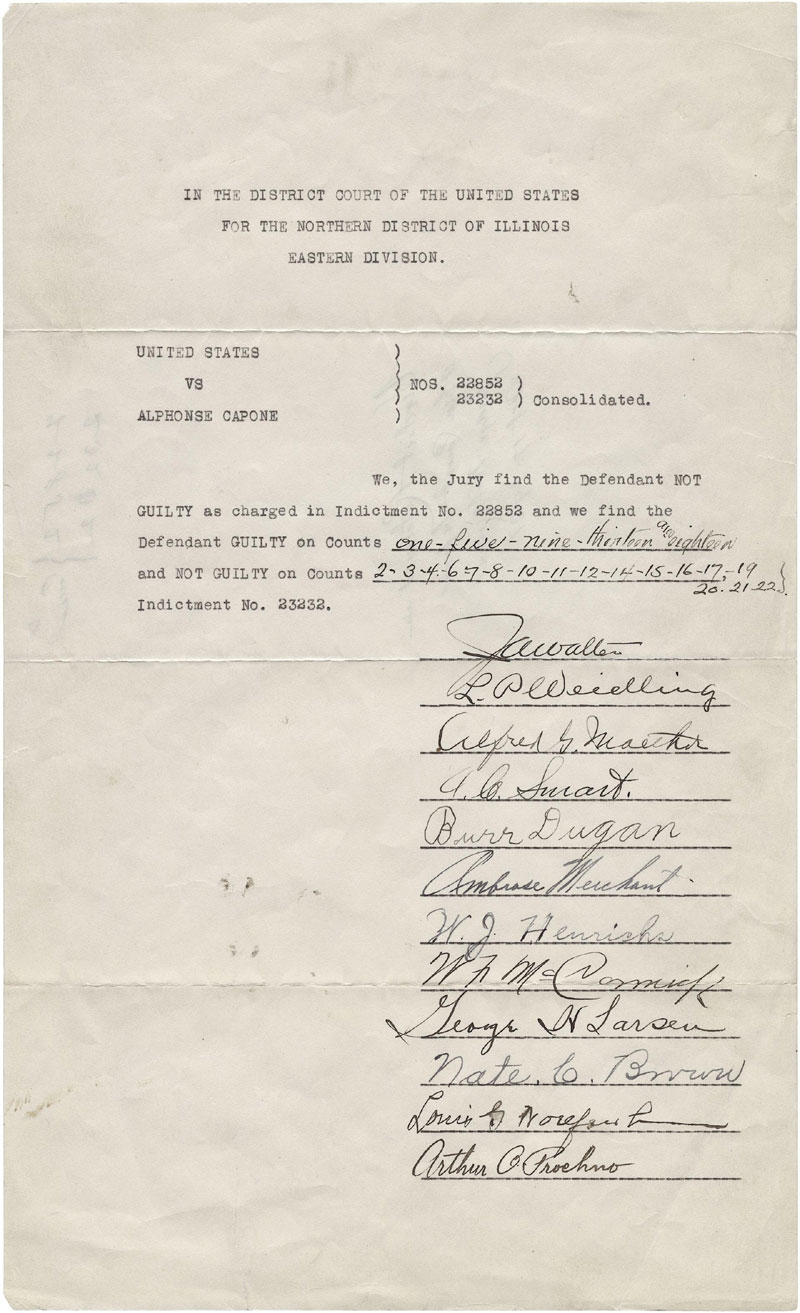The Internet
 National Archives Document for Today, October 17th: Verdict in United States of America v. Alphonse Capone, October 17, 1931
National Archives Document for Today, October 17th: Verdict in United States of America v. Alphonse Capone, October 17, 1931
In June 1930, after an exhaustive investigation by the federal government, notorious Chicago gangster Al Capone was indicted for income tax evasion. During a highly publicized trial, the prosecution documented Capone's lavish spending and proof that Capone was aware of his obligation to pay federal income tax but failed to do so. After nearly 9 hours of deliberation, the jurors found Capone guilty of three felonies and two misdemeanors. Capone was sentenced to serve 11 years in prison and to pay $80,000 in fines and court costs. more »
 Regret is a Gambler's Curse: “If you don’t feel any regret, you are getting close to the world of addictive or antisocial behavior”
Regret is a Gambler's Curse: “If you don’t feel any regret, you are getting close to the world of addictive or antisocial behavior”
“Right after making a choice and right before finding out about the outcome, the brain is replaying and revisiting nearly every feature of what happened during the previous decision,” said senior author Ming Hsu, an associate professor in the Haas School of Business and Helen Wills Neuroscience Institute at UC Berkeley. “Instead of ‘I just gambled but maybe I shouldn’t have,’ it is, ‘Last round I gambled and that was a really good choice.’ Or, ‘I played it safe last time but should have gone for it.’” more »
 How America Got Hooked on a Deadly Drug and How Rival Opioid Makers Sought To Cash In On Alarm Over OxyContin’s Dangers
How America Got Hooked on a Deadly Drug and How Rival Opioid Makers Sought To Cash In On Alarm Over OxyContin’s Dangers
Purdue’s 1996-2002 marketing plans for OxyContin, which Kaiser Health News made public this year for the first time, offer an unprecedented look at how that company spent millions of dollars to push opioids for growing legions of pain sufferers. Some of those drugmakers’ sales promotions downplayed or ignored the risks of taking opioids, or made false claims about their safety, federal regulators have asserted in warning letters to the companies. A wave of lawsuits demanding reimbursement and accountability for the opioid crisis now ravaging communities has heightened awareness about how and when drug makers realized the potential dangers of their products. more »
 What Research Says About How Bad Information Spreads Online
What Research Says About How Bad Information Spreads Online
"A 2017 study in the Journal of Economic Perspectives examined the consumption of false news in the US during the months leading up to the 2016 presidential election. In a survey of 1,208 U.S. adults, 15 percent said they remembered seeing false news stories, and 8 percent acknowledged seeing one of these stories and believing it. The study’s authors — Hunt Allcott, an associate economics professor at New York University, and Matthew Gentzkow, an economics professor at Stanford University — estimated that US adults, on average, 'read and remembered on the order of one or perhaps several fake news articles during the election period.'" more »






